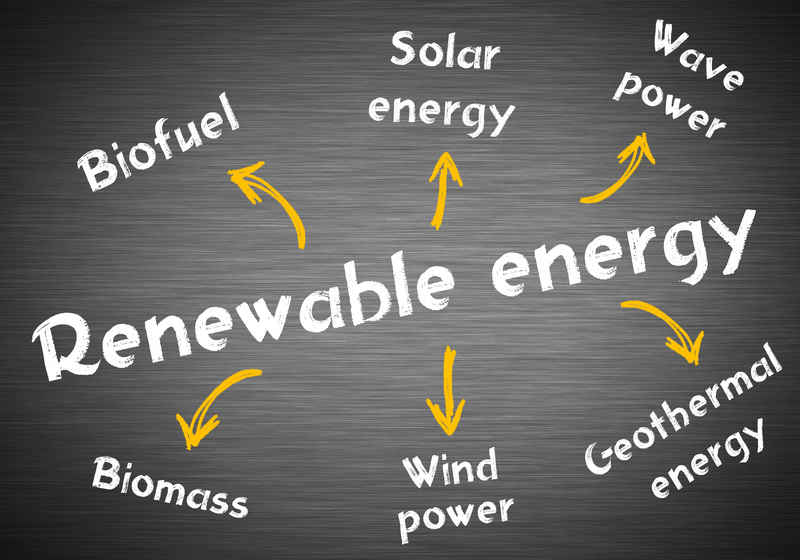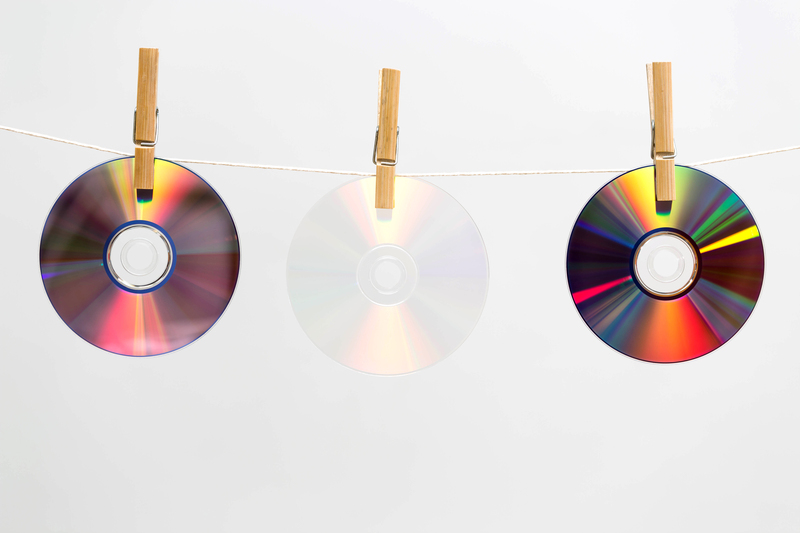Redefine Comfort through Minimalist Living and Decluttering
In a modern world overwhelmed by consumerism and constant stimulation, comfort is often equated with abundance. However, many are now discovering that true tranquility and well-being lie in the art of living with less. Minimalist living and decluttering are not just passing trends--they are holistic philosophies that can help you create a nurturing, calming home and a more mindful lifestyle. In this article, we will explore how you can redefine comfort through minimalist living, the science of decluttering, and actionable steps for creating an uncluttered space that fosters peace, creativity, and happiness.
What is Minimalist Living?
Minimalist living is a lifestyle that emphasizes the value of simplicity, intentionality, and prioritization. It encourages individuals to focus on what truly matters by removing excess possessions and distractions. The result is a living environment--and a mindset--that prioritizes quality over quantity, space over clutter, and mindfulness over mindless accumulation.
- Intentional Living: Making conscious choices about what you allow into your home and life.
- Quality over Quantity: Selecting items that truly serve a purpose or bring joy.
- Focus on Experiences: Redirecting resources toward meaningful experiences rather than material goods.
- Calm and Clarity: Creating spaces that support mental and emotional well-being.
Why is Minimalism Gaining Popularity?
The past decade has seen a remarkable shift towards minimalist living. Books like The Life-Changing Magic of Tidying Up by Marie Kondo and documentaries such as Minimalism: A Documentary About the Important Things highlight a growing desire for freedom from consumer culture. Rising stress levels, the environmental impact of overconsumption, and the search for happiness have driven people to explore minimalist lifestyles as a solution for a more fulfilling existence.

The Connection Between Decluttering and Comfort
Decluttering is at the heart of redefining comfort through minimalist living. A clutter-free home is visually calming and functionally efficient, resulting in numerous physical and psychological benefits.
How Clutter Impacts Our Well-Being
- Stress and Anxiety: Messy, overcrowded spaces elevate cortisol levels and contribute to chronic stress.
- Decreased Productivity: Clutter makes it harder to focus and find what you need, lowering efficiency.
- Poor Sleep Quality: Disorganized bedrooms disrupt rest and relaxation.
- Hindered Creativity: Visual chaos stifles innovation and creative thought.
- Health Risks: Excess items collect dust and allergens, impacting physical health.
By embracing minimalist home organization and decluttering, you can cultivate an environment designed for relaxation and rejuvenation.
The Benefits of Minimalist Living and Decluttering
- Enhanced Comfort: Fewer items mean more space, leading to open, breathable rooms that invite comfort.
- Financial Freedom: Spending less on unnecessary items leaves more resources for experiences or savings.
- Environmental Sustainability: Reduced consumption translates into a smaller carbon footprint and less waste.
- Empowered Decision-Making: Regular decluttering helps you focus on what truly adds value to your life.
- Improved Relationships: A calm home environment supports better connection and genuine interactions.
Transformative Steps to Embrace Minimalist Comfort
Redefining comfort through minimalist living and decluttering isn't about deprivation--it's about making room for what matters. Here's how to get started:
1. Clarify Your Why
Begin by defining your vision of comfort and why you want to adopt a minimalist approach. Is your goal to create a stress-free sanctuary? Do you want more time, energy, or resources for experiences and relationships? Having a clear purpose will sustain your motivation along the journey.
2. Start Small, Think Big
Minimalism is not an all-or-nothing endeavor. Focus on one space at a time--like a single drawer, closet, or countertop. Celebrate small victories. As you experience the liberating effects, gradually apply the principles to other areas of your home and life.
3. The Decluttering Process: Practical Tips
- Sort and Categorize: Group items into categories (keep, donate, recycle, sell, discard).
- Ask Purposeful Questions: "Does this add value to my life?" "Do I use this regularly?"
- One In, One Out Rule: For every new possession, consider letting go of a similar item.
- Storage Solutions: Use minimal, efficient storage to keep only what you need visible and accessible.
- Be Honest: Holding onto items out of guilt or obligation can undermine your comfort goals.
4. Design for Serenity: Minimalist Home Elements
A minimalist home doesn't have to feel bare or cold. Instead, focus on the strategic selection and arrangement of items to foster peace and warmth.
- Neutral Color Palettes: Whites, earth tones, and soft hues reflect light and create a tranquil backdrop.
- Functional Furnishings: Opt for multipurpose or streamlined furniture pieces to maximize space.
- Natural Materials: Wood, stone, and linen add tactile comfort and organic beauty to minimalist interiors.
- Personal Touch: Showcase a few meaningful objects or artworks to infuse character without clutter.
- Open Floor Plans: Unobstructed movement enhances comfort and promotes relaxation.
5. Maintain Your Minimalist Sanctuary
Minimalism is a journey, not a destination. Regularly schedule mini-decluttering sessions to keep your space aligned with your evolving needs and values. Practice mindful purchasing and reevaluate your possessions periodically.
Minimalist Living Beyond the Home
The principles of minimalist living and decluttering extend beyond physical spaces. Embracing simplicity can also transform your digital life, relationships, schedule, and mindset.
Digital Decluttering: Clean Up Your Online World
- Unsubscribe from Unnecessary Emails: Reduce digital noise and reclaim your attention.
- Organize Files and Photos: Declutter storage devices to make information easy to find.
- Limit Social Media: Set boundaries to minimize distractions and focus on meaningful connections.
Minimalism in Daily Routines
Simplify your schedule by prioritizing essential tasks and making time for rest, creativity, and reflection. Regularly assess commitments--a minimalist approach can help avoid burnout and ensure your energy is invested where it matters most.
Overcoming Challenges on the Minimalist Journey
Adopting minimalist habits and decluttering can be challenging, especially if you're accustomed to equating comfort with abundance. Here are common obstacles and strategies to overcome them:
- Emotional Attachment: Memories tied to possessions can make it hard to let go. Honor the emotion, keep a photo, and release the item.
- Fear of Scarcity: Trust that minimizing possessions will not lead to lack, but to liberation and comfort.
- Pressure from Others: Communicate your vision and set boundaries without imposing your choices on family or roommates.
- Perfectionism: Remember, minimalist living is about progress, not perfection. Embrace the process at your pace.
Minimalism and Mindfulness: A Path to Inner Comfort
At its core, minimalist living is less about aesthetics and more about cultivating mindfulness. By consciously curating your surroundings and experiences, you create an environment that supports your mental clarity, self-awareness, and emotional ease. Whether you're meditating in a serene living room or enjoying a clutter-free kitchen, the comfort you experience is deeply rooted in intentionality and presence.
Sustainable Minimalism: Comfort for You and the Planet
Eco-friendly minimalist living aligns your comfort with planetary well-being. By choosing high-quality, long-lasting products and reducing waste, you support a healthier environment. Donate items in good condition, recycle responsibly, and opt for sustainable materials wherever possible.
- Buy Less, Choose Well: Invest in items that last and serve true purpose.
- Repair and Upcycle: Extend the life of possessions rather than discarding them.
- Share and Borrow: Participate in community sharing or lending programs.
Minimalist Comfort: Real-Life Success Stories
People who embrace minimalist lifestyles often report profound changes in their well-being. From parents finding greater family harmony to entrepreneurs experiencing a surge in creativity, stories abound of lives made more comfortable and joyful through decluttering and simplicity.
- Stress Reduction: "Our home feels like a retreat. I can finally unwind after work without feeling weighed down by stuff."
- Clarity and Focus: "With fewer distractions, I'm more productive at work and at home."
- Financial Freedom: "Simplifying my lifestyle allowed me to build an emergency fund and travel more."
- Deeper Relationships: "Decluttering opened up space for family game nights and long conversations."

FAQs: Minimalist Living and Decluttering
1. Is minimalist living boring or restrictive?
Not at all! Minimalism isn't about depriving yourself, but about choosing what truly adds value. It often leads to greater contentment and more opportunities for meaningful experiences.
2. How do I deal with gifts or sentimental items?
Be grateful for the thought behind every gift. If an item no longer serves you or fits your space, it's okay to let it go. Consider keeping digital memories or giving items a second life with someone in need.
3. Can families adopt minimalist living?
Absolutely! Minimalism can foster stronger family connections and a more harmonious home life. Involve family members in the process and tailor minimalism to everyone's comfort.
4. How often should I declutter?
Make decluttering a regular habit--monthly refreshes work for some, while others prefer seasonal declutters. The key is consistency and aligning your environment with your evolving needs.
Conclusion: Redefining Comfort for a Mindful Future
Redefining comfort through minimalist living and decluttering invites you to shift from accumulation to appreciation. By letting go of excess and embracing intentional simplicity, you create a sanctuary that nurtures peace, creativity, and lasting joy. Begin with a single step, celebrate each little victory, and watch as your home--and your life--transforms into a haven of true comfort.
Embark on your journey today and experience the profound power of minimalist comfort. Your mind, wallet, and well-being will thank you.